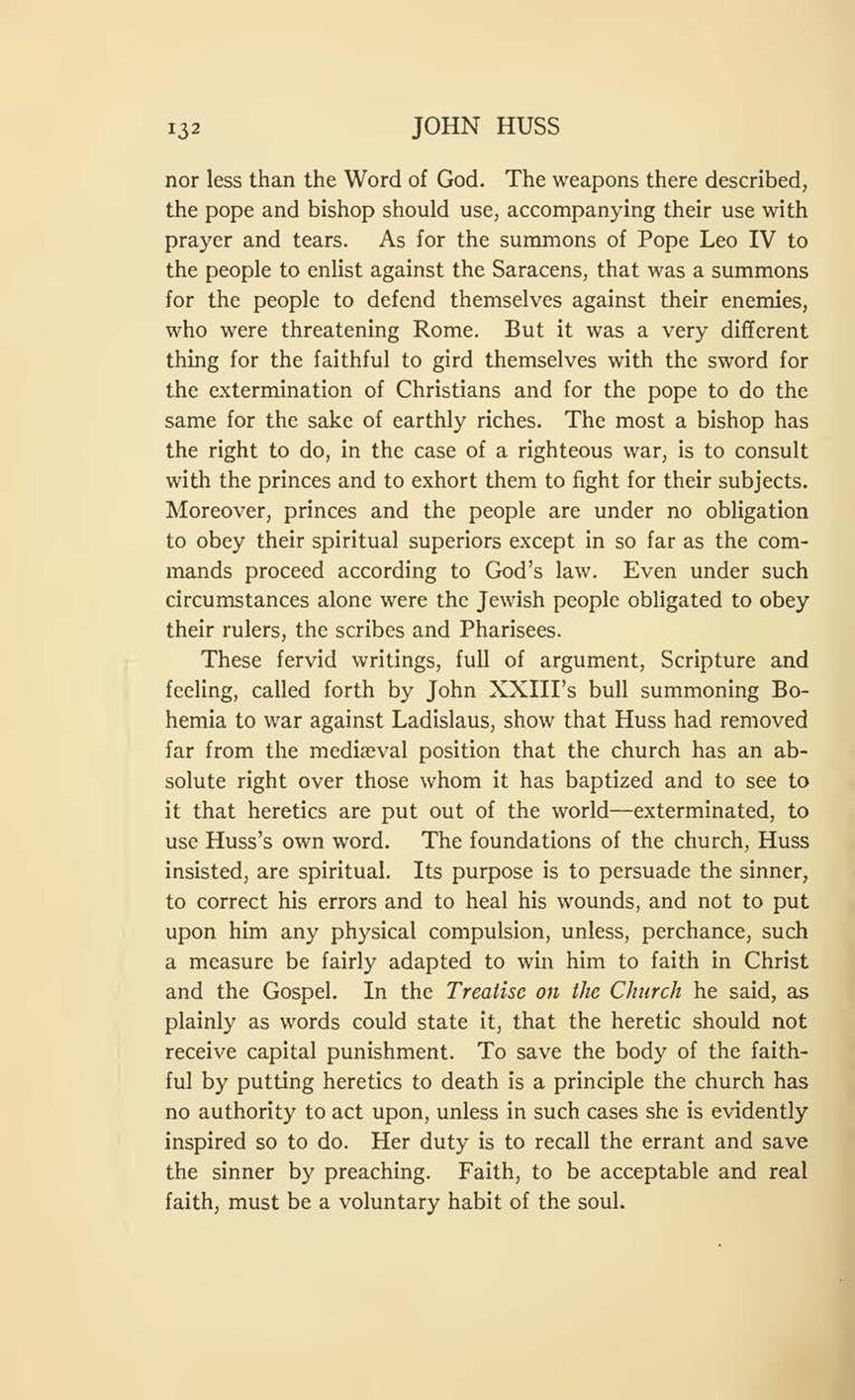nor less than the Word of God. The weapons there described, the pope and bishop should use, accompanying their use with prayer and tears. As for the summons of Pope Leo IV to the people to enlist against the Saracens, that was a summons for the people to defend themselves against their enemies, who were threatening Rome. But it was a very different thing for the faithful to gird themselves with the sword for the extermination of Christians and for the pope to do the same for the sake of earthly riches. The most a bishop has the right to do, in the case of a righteous war, is to consult with the princes and to exhort them to fight for their subjects. Moreover, princes and the people are under no obligation to obey their spiritual superiors except in so far as the commands proceed according to God’s law. Even under such circumstances alone were the Jewish people obligated to obey their rulers, the scribes and Pharisees.
These fervid writings, full of argument. Scripture and feeling, called forth by John XXIII’s bull summoning Bohemia to war against Ladislaus, show that Huss had removed far from the mediæval position that the church has an absolute right over those whom it has baptized and to see to it that heretics are put out of the world-exterminated, to use Huss’s own word. The foundations of the church. Huss insisted, are spiritual. Its purpose is to persuade the sinner, to correct his errors and to heal his wounds, and not to put upon him any physical compulsion, unless, perchance, such a measure be fairly adapted to win him to faith in Christ and the Gospel. In the Treatise on the Church he said, as plainly as words could state it, that the heretic should not receive capital punishment. To save the body of the faithful by putting heretics to death is a principle the church has no authority to act upon, unless in such cases she is evidently inspired so to do. Her duty is to recall the errant and save the sinner by preaching. Faith, to be acceptable and real faith, must be a voluntary habit of the soul.
